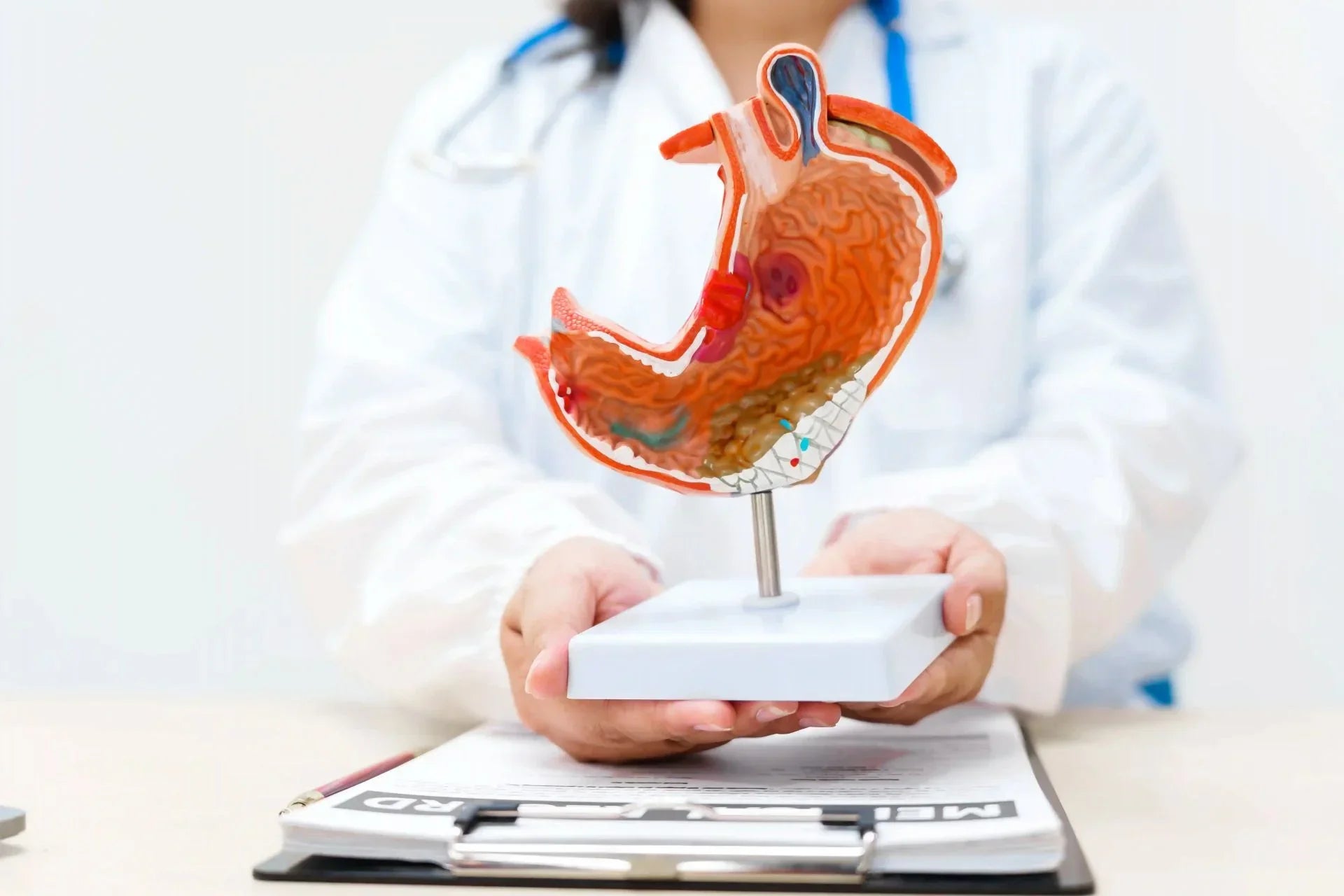Tips for recovery after bariatric surgery
Written by: Laura Arantegui / Date: 26-01-24 / Reading of 5 Minutes
Bariatric surgery is a procedure that has helped many people fight obesity and improve their overall health. However, the surgery itself is only the first step on your path to a healthier life. Recovery after bariatric surgery is critical to long-term success.
In this blog post, we will provide you with effective tips and care to ensure a good recovery.

Table of Contents
- Adequate food
- 2. Habits and recommendations
- 3. Exercise and physical activity
- 4. Possible complications: When to consult a physician
- 5. Periodic reviews
Care and advice for an optimal recovery from your stomach reduction
1. Adapted food:
After bariatric surgery, your digestive system undergoes significant changes. Initially, you will follow a liquid diet and then progress to soft foods before reintroducing solid foods. For an effective recovery, this is essential:
- Eat in small portions and chew food well to facilitate digestion.
- Avoid foods high in fats and sugars and focus on foods rich in protein (lean meats, white fish, skimmed dairy products, eggs, etc.), legumes, vegetables and fruits.
- Follow your medical team's recommendations for nutritional supplements to avoid deficiencies.


2. Habits and recommendations:
Developing healthy habits is crucial to maintaining a successful recovery. Consider the following:
- Establish a regular eating routine to maintain control over your intake.
- Pay attention to your body's hunger and satiety signals to avoid excesses.
- Avoid foods high in empty calories and unhealthy snacks.
- Focus on the quality of your diet rather than the quantity.
- In addition, establish a sleep routine that will help you face your day to day life with energy.
3. Exercise and physical activity:
Physical activity plays a key role in recovery after bariatric surgery. However, you should start gradually and consult with your medical team. Here are some recommendations:
- Start with short walks and increase the intensity and duration as you feel stronger.
- Find a physical activity that you enjoy, as this will make it more likely that you will keep it as part of your routine. Combine aerobic (walking, swimming, etc.) and strength and endurance exercise, always preceded by an adequate warm-up and ending with stretching exercises.
- Physical activity not only accelerates weight loss, but also improves cardiovascular health and endurance. Include it progressively and without exceeding the limits.


4. Possible complications: When to consult a physician:
It is important to be aware of possible complications after stomach reduction surgery and to know when to consult a physician. Some signs of complications may include:
- Unusual or persistent pain.
- Fatigue or tiredness that limits your day-to-day activities.
- Episodes of persistent diarrhea or vomiting.
- Dark colored stools.
- Gastroesophageal reflux.
- If you experience any of these symptoms or any other concerns, do not hesitate to contact your physician.
5. Periodic reviews:
Regular check-ups with your medical team are essential for monitoring your progress and early detection of possible complications. Attend all follow-up appointments with your medical team. These visits will allow you to evaluate your progress and make adjustments to your personalized plan if necessary.
In summary, recovery after bariatric surgery is a critical part of your journey to a healthier life. Follow a tailored diet and take your nutritional supplements, develop positive habits, incorporate physical activity gradually, know the signs of complications and attend regular check-ups with your medical team.
With the right support and a committed approach, you can achieve a good recovery and a healthier life. Remember that this guide is informative and is not a substitute for medical advice. Always consult your medical team for personalized guidance on your journey to health and weight loss after a tummy tuck.

Bibliographic references
1. Kassir R, Debs T, Blanc P, Gugenheim J, Ben Amor I, Boutet C, Tiffet O. Complications of bariatric surgery: Presentation and emergency management. Int J Surg. 2016 Mar;27:77-81. doi: 10.1016/j.ijsu.2016.01.067. Epub 2016 Jan 22. PMID: 26808323.
2. Bettini S, Belligoli A, Fabris R, Busetto L. Diet approach before and after bariatric surgery. Rev Endocr Metab Disord. 2020 Sep;21(3):297-306. doi: 10.1007/s11154-020-09571-8. Erratum in: Rev Endocr Metab Disord. 2020 Dec;21(4):449. doi: 10.1007/s11154-020-020-09583-4. PMID: 32734395; PMCID: PMC7455579.
3. Tabesh MR, Maleklou F, Ejtehadi F, Alizadeh Z. Nutrition, Physical Activity, and Prescription of Supplements in Pre- and Post-bariatric Surgery Patients: a Practical Guideline. Obes Surg. 2019 Oct;29(10):3385-3400. doi: 10.1007/s11695-019-04112-y. Erratum in: Obes Surg. 2020 Feb;30(2):793. doi: 10.1007/s11695-019-04323-3. PMID: 31367987.
Supplements that can help you in your postoperative period after bariatric surgery
Stomach Reduction Recovery Frequently Asked Questions
See other related articles:









